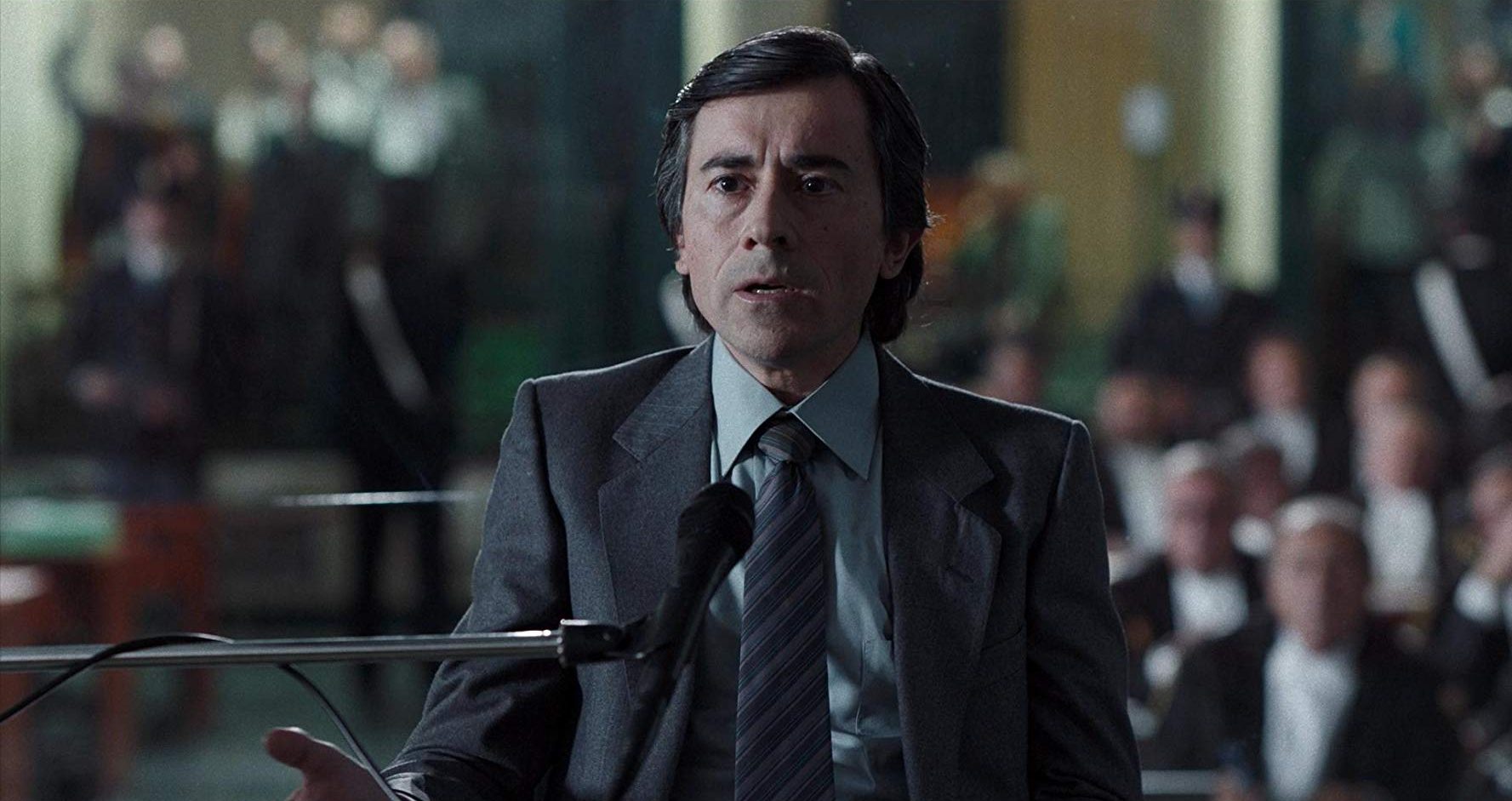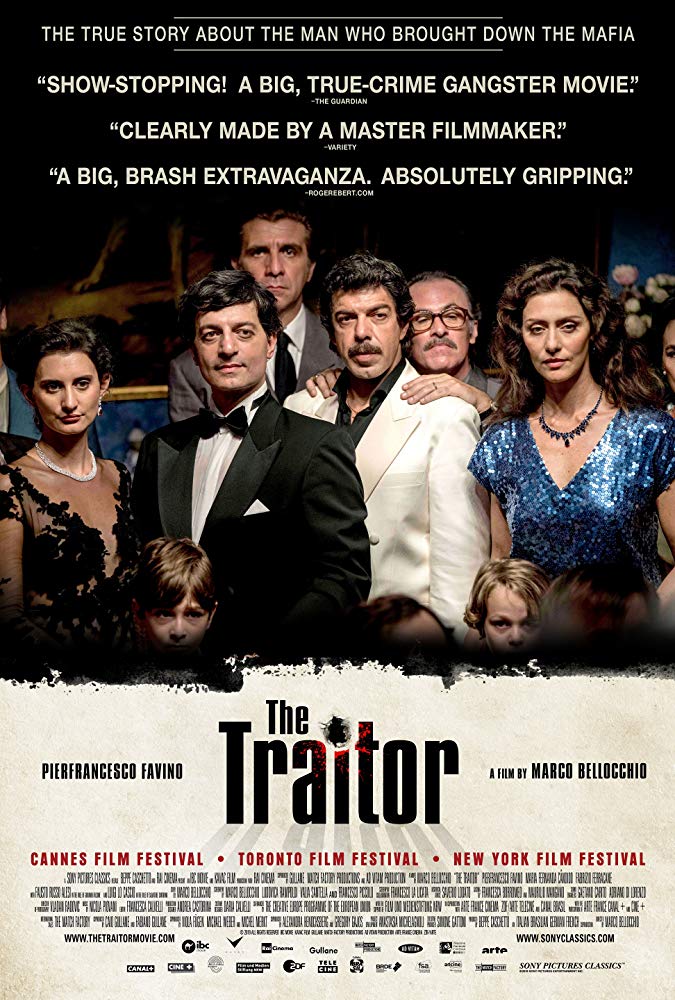Actually: 8.5
Basically: A mafia film about the costs of snitching.
It’s pretty rare to see a film about the Mafia that isn’t inspired by or cover the same ground as classic Scorsese and De Palma films. Even something like The Sopranos uses those existing ideas and flips them a little. The Traitor AKA Il Traditore is something different. Most of us in the United States don’t see many Mafia films from Italy or, as we see in the film, from the Sicilian Mafia AKA Cosa Nostra. Personally, I’m so used to the Italian American experience of organized crime that seeing it from an Italian perspective—one based on a true story—was quite captivating.
The Traitor opens on Tommaso Buscetta (Pierfrancesco Favino) at a family gathering. He’s planning to leave his crime boss life behind. He only tells his friend Pippo Calo (Fabrizio Ferracane) of his plans. Tommaso moves to Brazil with his third wife Cristina (Maria Fernanda Cândido) and four of his children, leaving his eldest sons back in Italy.

Photo via Sony Pictures Classics
After a civil war within the Sicilian Mafia, many of Tommaso’s friends and family are murdered including his two eldest sons. Tommaso is also imprisoned in Brazil for four years until he’s extradited back home. From there he chooses to work with the authorities and is the first Mafia boss to turn informant. This sets off a chain of events and arrests that shake up the entire culture of the Mafia and his hometown of Palermo, where he’s seen as a traitor by many including members of his family. However he’s of the mind that the Mafia turned on its own code and betrayed him.
I really liked this film and how it handled tone and suspense. Right after the first sequence at the party, the movie adds more and more. I can’t say I completely got where everything was going in the story because The Traitor doesn’t really hold your hand. For one thing, director Marco Bellochio added a timer on screen that is confusing for a good part of the first act, while different people are attacked by fellow gangsters. That element is pretty much dropped as things calm down. From there we move into what is mostly a film of Tommaso talking to Judge Giovanni Falcone (Fausto Russo). Their back and forth scenes are some of the best parts of the film.

Photo via Sony Pictures Classics
Favino plays Tommaso as a constantly cool-as-a-cucumber gangster talking about the merits of the Cosa Nostra. Falcone challenges Tommaso on his views, claiming there is no honor with what he and other men in the Mafia do, especially in regards to the community. Favino really carries this film with his performance as a man dealing with his actions as an informant and how the Mafia failed him, as well as his realization that maybe the institution wasn’t what he thought it was. A lot of this is in his face and I have to say that a person who’s not Italian might not totally get the inflections and dialect. There is a whole scene where the officers of the court are petitioning the judge about a witness not speaking formal Italian, but Sicilian Italian, and that part is kind of lost on me but the scene still works.
The Traitor has a great color palette and it’s used effectively to tell you where you are in the world. The film uses visual cues well in showing time passing and places. While both Italy and Brazil are shown as warm tonally, the filmmakers chose to use different types of lighting and color that are both warm yet completely different. You always know when the setting changes with no need for a caption.
In the End: The Traitor is a great piece of work that shows a different side to both the Mafia film subgenre and the whistleblower story. Great acting and directing will pull you in and captivate you the whole time.



